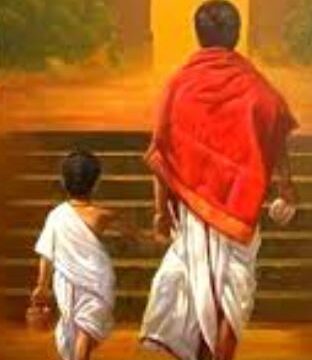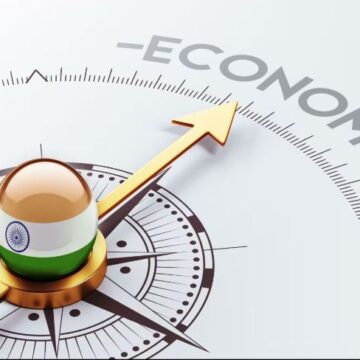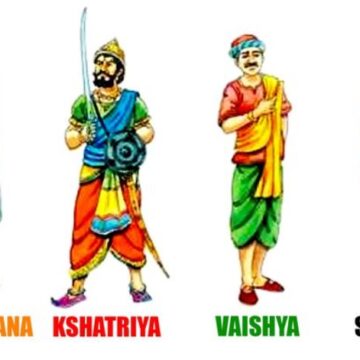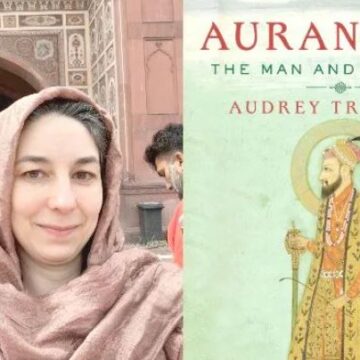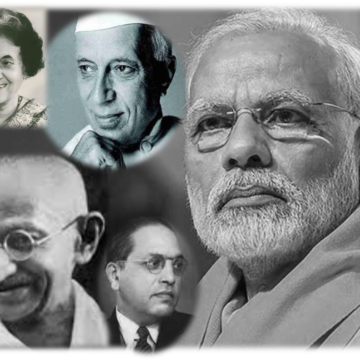It is one of the strangest ironies that, despite being an intricate part of our daily lives, we do not have any theory explaining Varna, Jati, and Kula. It is also not clear whether caste, understood as a class system, can be the foundation for understanding the complex arrangement of Varnas and Jatis in Indian society. One of the biggest sources of contradictory strands is the issue of whether Varna is by birth or not.
Chittaranjan Naik concludes that birth is not the cause of Varna, as popularly understood; it is the identifier.
Category: COMMENTARY
Understanding Indian Economy: Ancient To Modern – Part 4
The previous parts were an attempt to summarise the Indian economic story from its ancient roots until the end of British rule from various sources. The understanding of the Indian economy after independence also tends to be a little complex for a layperson to understand because of conflicting opinions. However, the overall story is one of hope and pride rather than shame and disappointment. This part also includes selected references and further readings for those interested.
Understanding Indian Economy: Ancient To Modern – Part 3
In the previous parts, we looked at the ancient and mediaeval Indian economies and the impact of European colonialism on India and the world. The British left in 1947, our economy was in shambles, and there were many problems with the intellectual narratives set by the colonials. This part is an assessment of British rule in India and where we stood at independence.
The real Shakti of Bharat lies in Chaturvarnya
"The system of division into different Varnas is the stepping stone to civilization, making one specialise and rise higher in the areas of one's heritage, learning and vocation. The youth of Bharat must try to understand the beauty of this eternal system where Chaturvarnya is the real Shakti of Bharat."
Understanding Indian Economy: Ancient To Modern – Part 2
Part 1 of this series was a summary of the ancient Indian economy. In this part, we shall look at the mediaeval economy of India, which began with the fall of the Gupta dynasty in the 7th century CE and finally culminated with the beginning of the Delhi Sultanate in the 13th century CE. This part also covers the important rise of Europe in dominating the world order through its colonial expansion and how it specifically impacted India too.
On Audrey Truschke’s “Aurangzeb: The Life and Legacy of India’s Most Controversial King”
"Bridging the chasm between the historical Aurangzeb and this reimagined (and largely imaginary) Aurangzeb is a daunting task, but Truschke makes her case with the chirpy enthusiasm of an Aurangzeb fangirl writing a puff piece in People magazine on her idol.
The received historiography on Aurangzeb is riddled with outlandish hoaxes that have gone unchallenged for decades. Truschke’s book is a worthy addition to this genre since it refreshes our memories of these hoaxes while enthusiastically manufacturing new ones."
An incisive and witty review of Audrey Truschke's book on Aurangzeb, and her source material, by Keshav Pingali.
The Curious Case of Hero Worship
The concept and popularity of hero worship is as old as time. Who then, can be classified as a hero? Are heroes born or created? Can hero worship endure long after the hero is gone?
Anshul Kalia explores all this, with special emphasis on the propensity of the Indian populace to hero-worship political leaders.
Divine Nexus: Salience of Hindu Temples
"To fully understand the social significance of Mandirs, one must delve into their profound philosophical underpinnings, historical moorings and cultural importance. Our Mandirs are the veritable embodiments of our culture, philosophy, and spirituality. Rooted in ancient Hindu tradition, Mandirs play a vital role in shaping the social and cultural fabric of India."
Understanding Indian Economy: Ancient To Modern – Part 1
"For a long time, Marxist historians had a hegemonic hold on only one type of discourse. Marxist linear history represents India and its traditions as the past, or decadence, and the West as the future, or progress. In a world where globalisation, trade, and mutual exchange are a given, it is disagreeable to argue that perhaps we needed an invasion or colonisation to open our eyes to the world."
Bridging Ancient Philosophies: The River of Consciousness
"Rather than getting entangled in doctrinal differences, it might serve us better to find the confluences, the shared understandings, and the universal truths that have guided humanity for millennia. In that spirit of unity, the river of consciousness presents a philosophical bridge, beckoning us to ponder, reflect, and ultimately understand."

